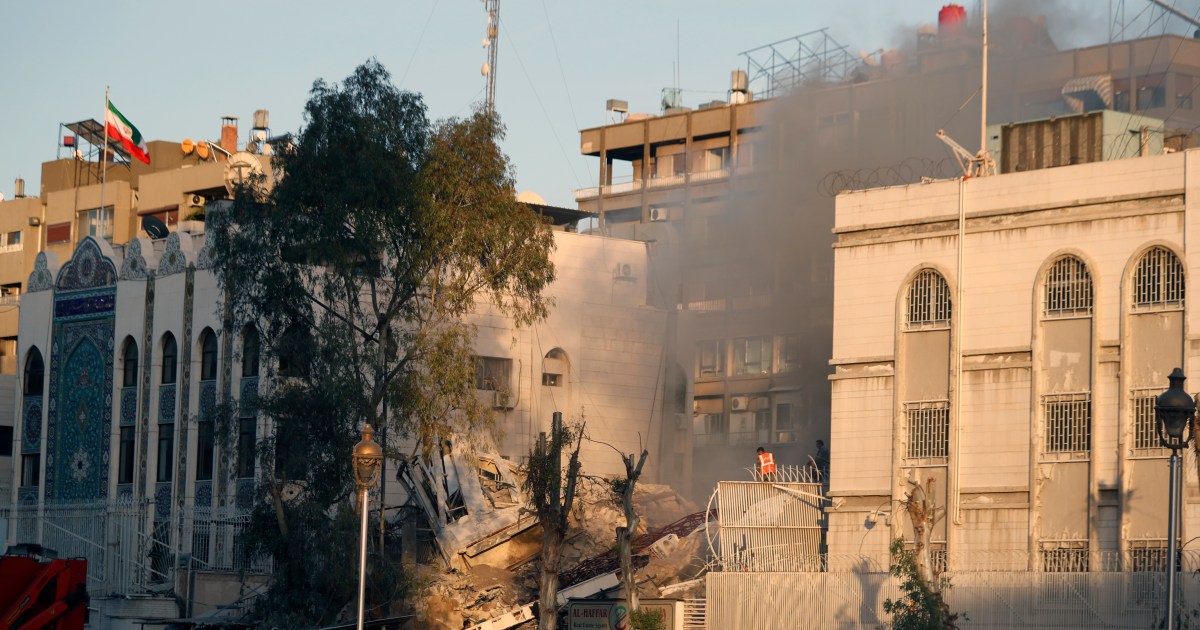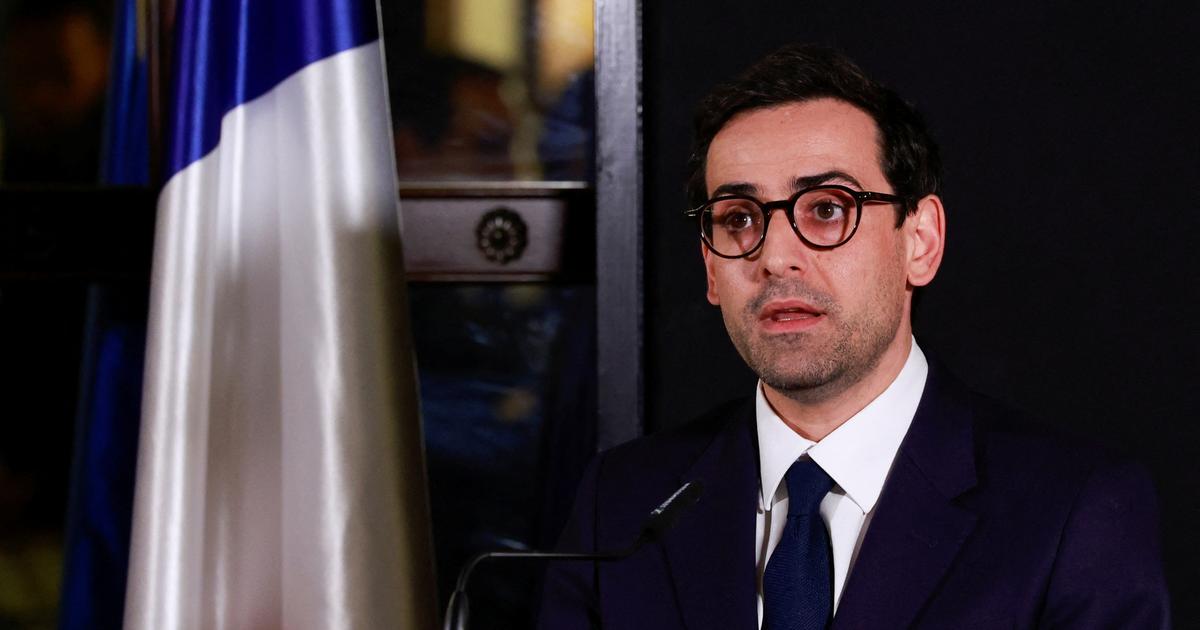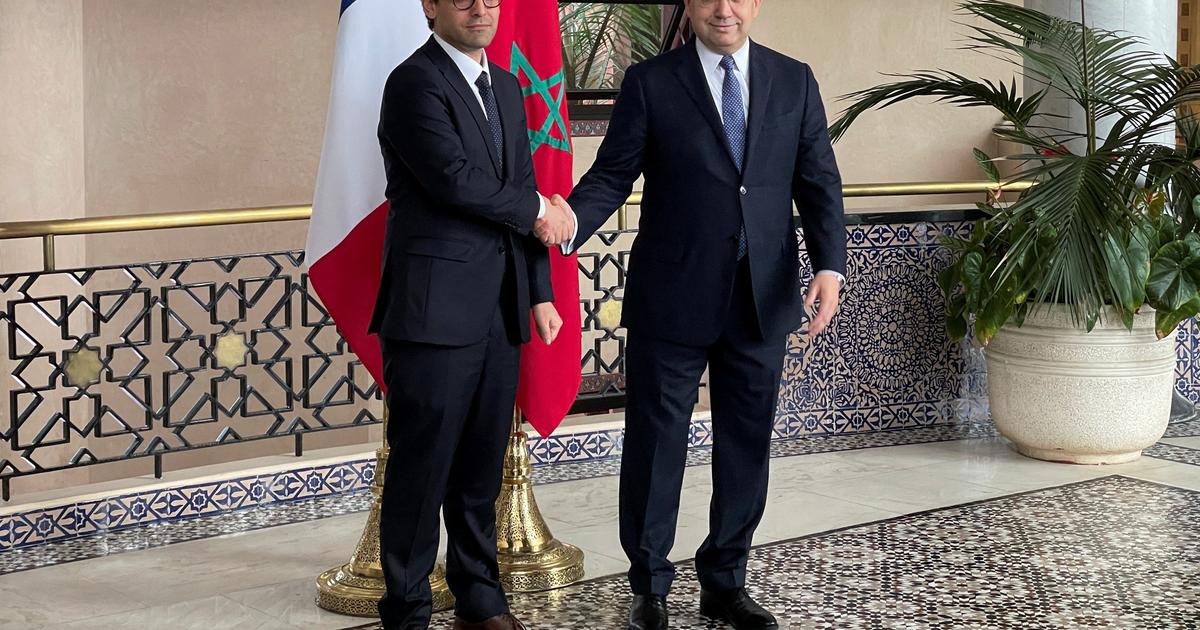Enlarge image
Protesters in the Moroccan capital Rabat are calling for the release of journalists Soulaiman Raissouni and Omar Radi on Tuesday this week
Photo: Mosa'ab Elshamy / AP
"My problem is that I always have hope." Saida El Kamel laughs, but it doesn't sound happy.
The 36-year-old journalist from Morocco worries about her imprisoned colleague and former editor-in-chief Soulaiman Raissouni.
His life is in danger, says El Kamel on the phone.
Raissouni started a hunger strike more than 40 days ago.
Officials say that Raissouni is doing well and that he is receiving medical assistance.
However, his wife and legal organizations say he is extremely weak.
“It hurts incredibly what happens to him.
And I wonder what is left for me as a journalist in a country if a colleague is dying in prison just because he wants a fair trial, «says El Kamel.
"Much indicates a game that has been agreed upon"
The charges against Raissouni are serious: a young man from the Moroccan LGBTQ community accuses him of sexual assault.
Human rights activists suspect the allegation is politically motivated.
You are not calling for Raissouni's unconditional acquittal, but for what everyone in a constitutional state is entitled to - a fair, transparent process.
There can be no question of that: Soulaiman Raissouni has been in prison for a year and so far there has been no verdict against him. All requests for temporary release were denied. The Moroccan human rights activist Khadija Ryadi reported on the phone about a non-transparent process. She says, “It's not up to me to judge what he's done. Much suggests a game that has been agreed upon. There were contradictions in the indictment. But whatever the facts, there is no justification for disregarding one's rights. "
Raissouni is one of five journalists critical of the government who will face various hearings in court in June.
It is not only he who is charged with sexual crimes.
Journalist Omar Radi is also in the dock in June for raping a woman - and for allegedly endangering state security.
Instrumentalization of #MeToo?
Radi was arrested last summer, one month after the human rights organization Amnesty International reported that Radi's phone had been illegally tapped by the authorities. Amnesty International sees a pattern in Morocco where allegations of sexual assault are used as an excuse to silence unpleasant voices. Critics accuse the country's government of using the global #MeToo movement for its own purposes.
The fact that the Moroccan judiciary is suddenly interested in the rights of women and LGBTQ people doesn't seem credible: homosexuality is still illegal in Morocco.
In 2019, journalist Hajar Raissouni - a niece of Soulaiman Raissouni - was arrested on charges of extramarital sex and an abortion.
The authorities forced her to undergo a medical examination to verify that an abortion had taken place.
After all, she was pardoned by the king six weeks later.
more on the subject
Diplomacy: How this YouTuber is fueling the crisis between Germany and Morocco
Dramatic scenes after the opening of the border: The desperate children of Ceuta From Ceuta reports Steffen Lüdke
Failed migration policy: Violence rules on Europe's borders A comment by Maximilian Popp
The newspaper, for which the two Raissounis had worked, had to cease operations in March due to financial problems and pressure from the state apparatus.
Akhbar Elyoum was the last independent newspaper in Morocco with some reach that dared to criticize the government.
The journalist Saida El Kamel, who is now committed to Raissouni, also wrote for this paper.
She says: "It was not an opposition newspaper, but a newspaper that stood for professional, factual journalism."
Dwindling free space
El-Kamel tells how the closure came about: A defamation campaign against the newspaper's staff, based among other things on the arrest of the two Raissounis, put pressure on the publishers. The paper suffered financially because many no longer dared to advertise in the newspaper: "If a publication has bad connections to the power apparatus, you distance yourself from it," she says. The state pandemic aid for »Akhbar Elyoum«, which all print media are entitled to, was discontinued one day without a reason. In the end, the employees were forced to work without wages for months.
Now El Kamel is unemployed.
Known for her sharp pen, the journalist finds it difficult to publish in the country: "You perceive it as a risk to give me assignments," she says of other media companies.
At the same time, the few digital publications that make critical journalism lack money.
But El Kamel still has hope and tries to continue writing.
For some time now, human rights organizations have been observing a significant increase in repression against critical voices in Morocco.
It is a U-turn after a relative opening ten years ago, when the Arab Spring moved neighboring countries and suddenly oppositionists were invited to public appearances on television in Morocco as well.
El Kamel says: »I can feel it in the interviews: Nobody dares to speak anymore. Sometimes people ask me what I'm still doing in Morocco - and they think that someone like me, who I'm not yet in prison, should better leave the country. "








